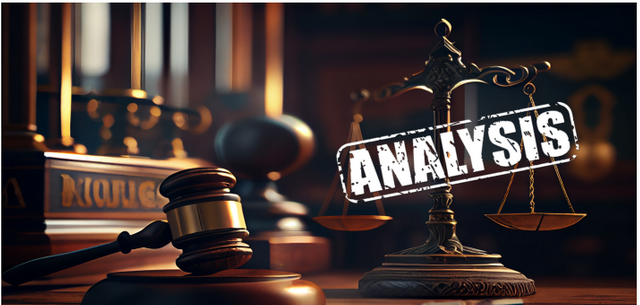(Part 1)
On the occasion of the Opening of the Legal Year recently, the incongruent positions taken by the two key parties in the dispensation of justice in Botswana – the Department of Administration of Justice and the Law Society of Botswana – can only harm the country
GAZETTE REPORTERS
Over the course of the next four editions, The Botswana Gazette will undertake an analysis of the state of the judiciary and its independence and public confidence in it. This comes in the wake of the Law Society of Botswana’s (LSB) boycott of the opening of the Legal Year ceremony on 6 February 2024.
The Chief Justice dubbed 2024 as the year of “the judiciary as an independent arm of government”. Judicial independence is a concept that is so sacrosanct in a democracy that its re-statement from within the judiciary itself is reason for concern. Yet we have, as a nation, over the years heard repeated calls, held conferences and workshops and listened to speeches on the need to protect judicial independence to what appears to be to no avail.
Tensions between lawyers, represented by the LSB, and the Department of Administration of Justice climaxed last week with a first-time boycott of the opening of the legal year ceremony since establishment of LSB in 1997. While tensions have been simmering between the two critical components of the judicial system for many years, 2024 marked the first year that lawyers passed a resolution not to attend the preeminent annual legal event attended by the Chief Justice, his fellow justices and the President of the Republic, among others.
A look into their respective addresses makes it clear that AOJ, represented by the Chief Justice, and the LSB were keen to throw stones at each other’s glass houses while seeking to achieve the same goal: an independent, viable, legal system that protects and promotes the rule of law. It may be apposite to opine that both these institutions, the LSB and the OAJ, are throwing the stones at each other while the branches of the Legislature and the Executive remain unscathed.
Intimidation
In his opening address, the Chief Justice Terence Rannowane, while conspicuously failing to mention the LSB boycott of the Opening of the Legal Year, lamented that criticism of judges amounts to a form of “intimidation” and further highlighted, in self-praise, a screwed analysis of Botswana’s improvement in international indices.
Speaking to a gallery void of attorneys, save for a few dissidents who flouted the resolution of their peers not to attend the opening of the legal year, the Chief Justice made the disturbing statement that ought to be perceived by members of the Bar and the Bench as an unfortunate gaffe: that criticism from inaccurate, incomplete or misconceived understanding of the role of the judiciary amounts to intimidation of judges.
Seldom has such a self-serving and archaic approach to judicial oversight been espoused by a sitting Chief Justice in the 21st century.
Growing concerns
The Chief Justice repeated past undertakings on the integrity of the judiciary, its independence and its hurdles, as though such positions had not previously been made, to remedy, address and explain the growing concerns, both nationally and internationally over the well-being of the judiciary. Under the guise of Botswana’s oft cited democratic success story, the Chief Justice rested on the past laurels of the country’s achievements without acknowledging the overall downward trend of public confidence in the judiciary over the last 20 years and the efforts that the current administration is making to reverse it.
Ironically, the Chief Justice spoke of the concern regarding forum shopping by litigants, and yet to-date no judgement has found any attorney to have done so, contrary to two judgements that have found against the Chief Justice overreaching his authority and appointed a bench to hear cases that he considered politically sensitive: the highest form of forum shopping!
For their part, the Law Society of Botswana voted to boycott the Opening of the Legal Year due to the failure of the Chief Justice to honour appointments to address the decline of Botswana’s rule of law and the equally sharp decline in public trust in the role and function of the judiciary. Amid the valid concerns raised by LSB, the most concerning allegation levelled against the judiciary was that of judges accepting bribes. LSB did not provide names, did not shame the culprits and did not bring to the attention of the public any indication or claim that it had evidence to substantiate its allegations.
Incongruent
The incongruent positions taken by the two key parties in the dispensation of justice can only harm the country. It is clear that the concerns raised by the law society and the decline in public confidence in the judiciary need to be examined in greater detail and placed in the larger context of the overall downward trend of Botswana’s perceived exceptionalism.
Over the course of the next four weeks, The Botswana Gazette will attempt to undertake such an analysis.

